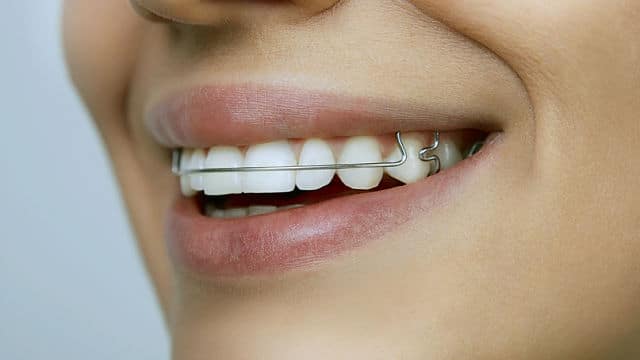Braces And Gum Swelling

Swollen gums can be aouch, and when you’re wearing braces, it can be even more uncomfortable. But don’t worry, we’ve got the lowdown on what causes gum swelling with braces and what you can do to prevent and treat it.
First, let’s talk about why gums get swollen in the first place. When you wear braces, your teeth are moving, and that can cause your gums to become inflamed. This is because the braces are putting pressure on your teeth and the surrounding tissue, which can lead to swelling. Additionally, if you don’t clean your teeth and braces properly, plaque and bacteria can build up, causing gum disease and further inflammation.
Now, let’s get to the good stuff – how to prevent and treat gum swelling with braces. Here are some tips:
- Brush and floss like a pro: Make sure to brush your teeth at least twice a day, and floss once a day, to remove any food particles and plaque that can get stuck in your braces. Use a soft-bristled toothbrush and a fluoride toothpaste, and don’t forget to brush your tongue and the roof of your mouth.
- Use a waterpik: A waterpik can be a game-changer for people with braces. It can help remove any food particles and plaque that can get stuck in your braces, and it can also help reduce gum inflammation.
- Mouthwash is your friend: Mouthwash can help kill any bacteria that can cause gum disease and inflammation. Look for a mouthwash that contains fluoride and has the American Dental Association (ADA) Seal of Acceptance.
- Take care of your overall health: Gum disease has been linked to other health issues, such as diabetes and heart disease. So, make sure to take care of your overall health by eating a balanced diet, exercising regularly, and getting enough sleep.
- Visit your orthodontist regularly: Your orthodontist can help identify any potential issues with your gums and teeth, and they can provide personalized advice on how to prevent and treat gum swelling.
Now, let’s talk about some common myths about gum swelling with braces.
- Myth: Gum swelling is a normal part of wearing braces. While it’s true that gum swelling can be a common issue with braces, it’s not necessarily a normal part of the process. With proper care and attention, you can prevent and treat gum swelling.
- Myth: You can’t do anything to prevent gum swelling. This is simply not true. By following the tips above, you can help prevent gum swelling and keep your gums healthy.
- Myth: Gum swelling only affects people with braces. While gum swelling is more common in people with braces, it can affect anyone. So, make sure to take care of your gums, regardless of whether you have braces or not.
Here are some frequently asked questions about gum swelling with braces:
What causes gum swelling with braces?
+Gum swelling with braces can be caused by a combination of factors, including poor oral hygiene, plaque and bacteria buildup, and the pressure from the braces themselves.
How can I prevent gum swelling with braces?
+To prevent gum swelling with braces, make sure to brush and floss regularly, use a waterpik, and mouthwash, and take care of your overall health.
What are the symptoms of gum swelling with braces?
+The symptoms of gum swelling with braces can include redness, swelling, and bleeding of the gums, as well as sensitivity and pain.
How can I treat gum swelling with braces?
+To treat gum swelling with braces, make sure to follow good oral hygiene practices, use a desensitizing toothpaste, and consider using a gum soothing gel or mouthwash.
Can gum swelling with braces be a sign of a more serious issue?
+Yes, gum swelling with braces can be a sign of a more serious issue, such as gum disease or an infection. If you're experiencing persistent or severe gum swelling, make sure to consult with your orthodontist or dentist.
How long does it take for gum swelling to go away with braces?
+The time it takes for gum swelling to go away with braces can vary depending on the individual and the severity of the swelling. With proper care and attention, gum swelling can be reduced or eliminated within a few days to a week.
In conclusion, gum swelling with braces is a common issue, but it’s not inevitable. By following the tips outlined above and taking care of your overall health, you can help prevent and treat gum swelling. Remember to brush and floss regularly, use a waterpik and mouthwash, and visit your orthodontist regularly to ensure the best possible outcome for your teeth and gums.
